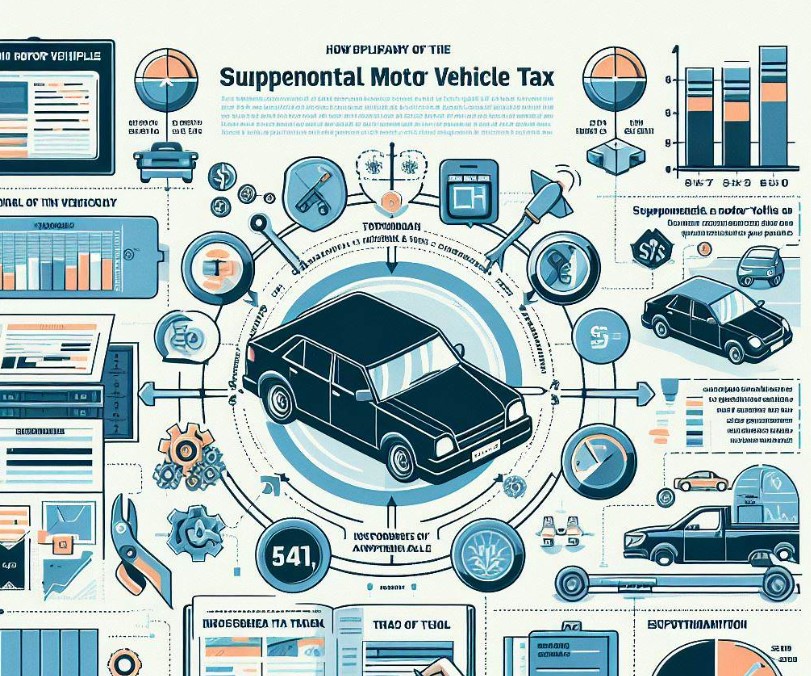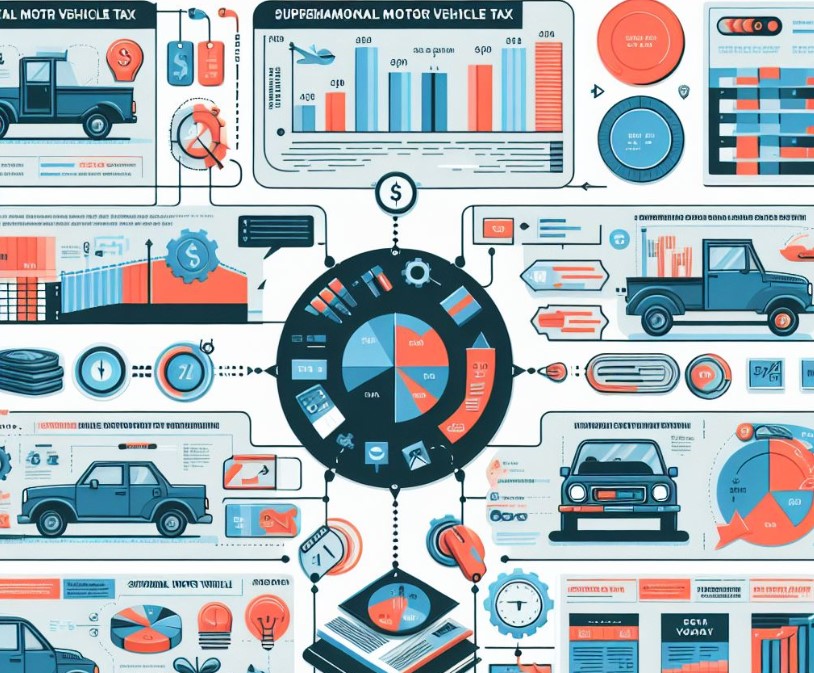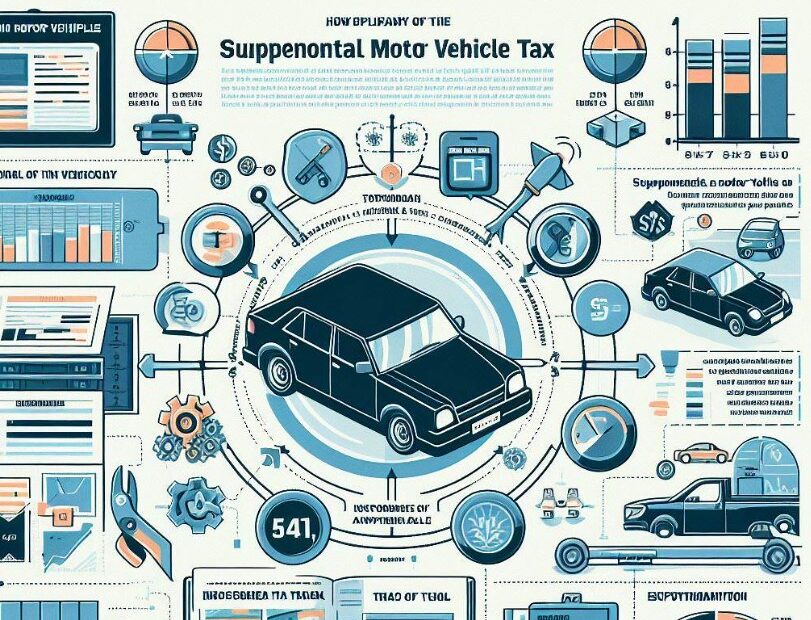Are you looking for What Is Supplemental Motor Vehicle Tax? This question often puzzles vehicle owners. The Supplemental Motor Vehicle Tax is a unique tax assessed in some regions. It’s levied on motor vehicles not registered at the time of a municipality’s general tax assessment. Let’s delve deeper into this subject to unravel its complexities and implications.
Key Takeaways
- Supplemental Motor Vehicle Tax is a specific tax imposed on vehicles registered outside the general tax assessment period.
- It ensures equitable tax distribution among all vehicle owners.
- The tax is calculated based on the vehicle’s assessed value and the prorated annual tax rate.
What Is Supplemental Motor Vehicle Tax?
The Supplemental Motor Vehicle Tax is a tax levied on motor vehicles that are registered after the date of the standard property tax assessment in a given jurisdiction.
This tax is calculated based on the vehicle’s assessed value and is prorated to cover the period from the registration date to the next regular tax assessment cycle. It ensures that all vehicle owners pay their fair share of taxes for the time they own and use the vehicle within the fiscal year.

Understanding the Supplemental Motor Vehicle Tax
Definition and Purpose
The Supplemental Motor Vehicle Tax is imposed to ensure fairness in tax distribution. When a vehicle is registered after the annual assessment, this tax applies. It bridges the gap between the registration date and the next tax cycle.
Calculation Method
This tax is determined by the vehicle’s assessed value, typically a percentage of its fair market value. The tax period is prorated from the vehicle registration date to the end of the fiscal year.
Assessment and Billing
When Is It Assessed?
The tax is assessed after the vehicle’s registration, typically within the same fiscal year. It’s a one-time tax until the next general assessment.
Billing Process
Tax bills are usually sent by local tax authorities. They detail the assessed value, tax rate, and the due amount. Payments are often due within a month of billing.
Factors Influencing the Tax
Vehicle Value
Higher-valued vehicles incur higher taxes. The tax is a percentage of the vehicle’s assessed value.
Local Tax Rates
Tax rates vary by locality. They influence the total tax amount.
Exemptions and Reductions

Qualifying Criteria
Certain vehicles or owners may qualify for exemptions or reductions. This includes veterans, disabled individuals, and specific vehicle types.
Application Process
Applications for exemptions must be submitted to local tax authorities, usually with supporting documentation.
Comparison with Standard Vehicle Taxes
Similarities
Both taxes are based on the vehicle’s value and local tax rates.
Differences
The standard vehicle tax is assessed annually, while the supplemental tax is a one-time assessment for newly registered vehicles.
Practical Implications for Vehicle Owners
Financial Planning
Understanding this tax is crucial for budgeting and financial planning.
Compliance
Non-compliance can lead to penalties and legal issues.

Payment Process
When it comes to paying the Supplemental Motor Vehicle Tax, it’s essential to understand the process. Upon receiving the tax bill, vehicle owners must pay by the specified due date, usually within a month of billing.
Payment methods vary by locality but commonly include online, mail, or in-person options. Timely payment is crucial to avoid late fees and interest charges, which can accumulate quickly.
Handling Late Payments and Penalties
If payment is delayed, the consequences can be significant. Late payments attract penalties, typically a percentage of the unpaid tax, plus interest. Vehicle owners might also face administrative holds on vehicle registration renewal or other municipal services.
It’s crucial to contact local tax authorities immediately if facing difficulties in making timely payments. Many jurisdictions offer payment plans or temporary relief options for eligible taxpayers.
Impact on Vehicle Insurance and Registration
Insurance Considerations
The Supplemental Motor Vehicle Tax can indirectly impact vehicle insurance. Some insurance companies might require proof of tax payment before renewing or initiating a policy. This ensures that the vehicle is legally registered and compliant with local regulations. Keeping up with tax payments can therefore be critical for uninterrupted vehicle insurance coverage.
Registration Renewal
For vehicle registration renewal, proof of paid taxes is often a prerequisite. Failing to pay the Supplemental Motor Vehicle Tax can result in a block on the renewal process. This can lead to legal issues, including fines and penalties for driving an unregistered vehicle. It’s advisable to clear any outstanding vehicle taxes well before the registration renewal date.
Disputing Tax Assessments

Grounds for Dispute
There might be situations where vehicle owners believe the Supplemental Motor Vehicle Tax assessment is incorrect. Grounds for dispute can include errors in vehicle valuation, incorrect tax calculations, or misapplication of local tax rates. Understanding the assessment process and the underlying tax laws is crucial for a successful dispute.
Dispute Resolution Process
To dispute a tax assessment, the first step is usually to contact the local tax assessor’s office. Most disputes are resolved through a formal review process, where vehicle owners can present evidence supporting their case. If the dispute is not resolved to the taxpayer’s satisfaction, there may be options for further appeals, depending on local laws and regulations.
Legal and Compliance Aspects
Legal Obligations
Paying the Supplemental Motor Vehicle Tax is not just a financial responsibility; it’s a legal obligation. Non-compliance can lead to legal repercussions, including liens on property, legal proceedings, and additional financial penalties. Vehicle owners must understand their legal responsibilities to avoid these consequences.
Compliance Benefits
On the flip side, staying compliant with tax obligations provides several benefits. It ensures uninterrupted access to vehicle-related services, maintains good standing with local authorities, and avoids the stress and costs associated with legal troubles. Compliance is a key aspect of responsible vehicle ownership.
Conclusion
To conclude, What Is Supplemental Motor Vehicle Tax? It’s a crucial mechanism ensuring fair tax distribution among vehicle owners. Its calculation, influenced by vehicle value and local tax rates, is essential for equitable tax practices. Understanding this tax is vital for compliance and financial management.
Top FAQ’s
Can I pay the Supplemental Motor Vehicle Tax in installments?
Payment options, including installment plans, vary by jurisdiction. Some local tax offices may offer installment plans, especially if the tax amount is substantial. Contact your local tax authority to inquire about available payment options.
What should I do if I don’t receive a tax bill for a newly registered vehicle?
If you don’t receive a tax bill, it’s important to contact your local tax authority. Non-receipt of a bill doesn’t exempt you from paying the tax, and you could accrue penalties for late payment.
Are there any exemptions or reductions available for this tax?
Yes, exemptions or reductions might be available for certain individuals, like veterans, seniors, or those with disabilities, and specific types of vehicles. Contact your local tax office to find out if you qualify and how to apply.
How often do I need to pay the Supplemental Motor Vehicle Tax?
The Supplemental Motor Vehicle Tax is a one-time tax assessed when a vehicle is registered outside the standard assessment period. You won’t have to pay it annually unless you register a new or different vehicle after the standard tax assessment date.

Muhammad Talha Naeem is a seasoned finance professional with a wealth of practical experience in various niches of the financial world. With a career spanning over a decade, Talha has consistently demonstrated his expertise in navigating the complexities of finance, making him a trusted and reliable figure in the industry.









